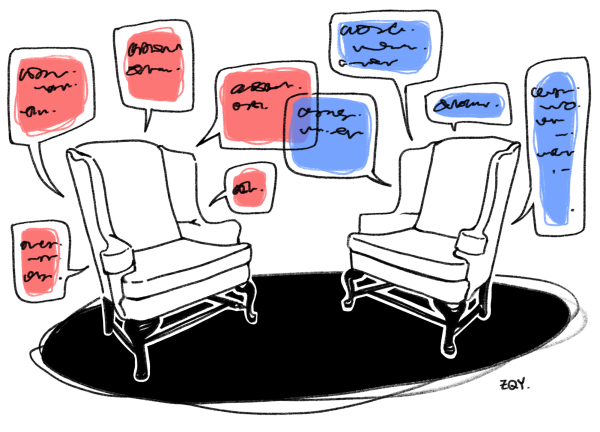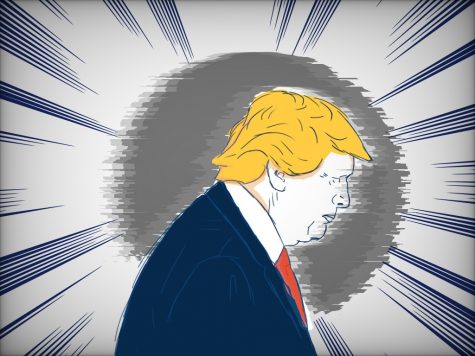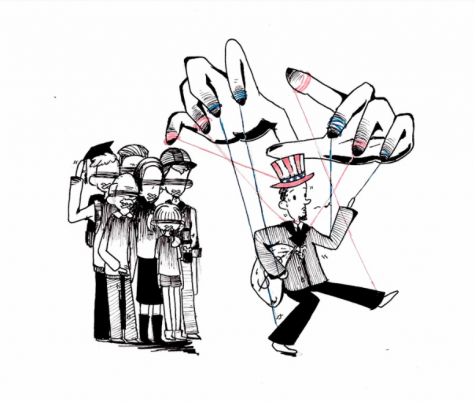The Right to Be “Part of the Resistance”
In early September, the New York Times published an anonymous op-ed essay from a senior official of The Trump Administration. It disclosed the dilemmas the President was facing, and how the author believed Trump was not a suitable decision maker for the US. If the identity of this official is disclosed, it will undoubtedly jeopardize his job.
Under the 25th Amendment, the Cabinet and Congress are given an elaborate procedure for temporarily replacing the President with the Vice President in the extreme case where the President appears unable to carry out his duties. “Unable” here is interpreted by many to mean completely incapacitated, even if temporarily. Thus in other circumstances when the President is able to carry out his duties, members of the executive branch should not undermine the President in any way. But there may be situations when a President is not “unable” to carry out his or her duties where nevertheless the staff may be justified in at least indirectly trying to block the President’s decisions. This is where the President’s actions may endanger citizens, cause major economic or social harm, or damage relationships with our allies. These are also the only situations where members of the Trump Administration should undermine the president.
Of course, if bureaucrats or other employees of the government try to undermine the elected President just because they disagree with his policies, they would be undermining the very foundation of democratic government. As Rousseau would say, when we enter society we implicitly sign a social contract, and that contract requires us to accept the results of elections or the decisions of society even if we disagree with them. Otherwise, we would be so blatantly violating the social contract that anarchy would result. But remember that the President himself is bound by the social contract. If his actions are so reckless, disruptive, or unconstitutional that he is in effect violating his oath of office, then he is the one breaking the social contract. In this circumstance, his employees who seek to correct his errors are not breaking the social contract; in fact, they are restoring the social contract.
If the President were threatening to cause grave economic harm such as a financial crash, and if preventing that catastrophe requires undermining the President, then his staff would be justified in taking action. If large social changes such as passing laws on gay rights, education, jobs, racial discrimination, and gender equality were involved, then it would be crucial to ensure that the administration makes beneficial and plausible decisions.
Controversial and critical topics like these should not be overlooked merely because they cause no physical harm to citizens; dangerous Presidential actions can still cause political disarray. Preserving peace to keep the country organized and well-managed is so crucial that it may, on rare occasions, justify the kind of action and expression that the op-ed writer took. Similarly, if a President’s actions pose an egregious threat to our relations with our allies, this too may be a situation that justifies the writer’s action. If this cooperation among allied nations is broken, it may lead to chaos and conflicts such as the current trade war between the United States and China, a diplomatic crisis surely worth slight duplicity to avoid.
Under these unusual circumstances, undermining the President is not only legitimate, it is imperative, and should only be allowed when the President’s actions may endanger citizens, cause major economic or social harm, or damage relationships with our allies. Moreover allowing for such otherwise subversive expression is part of our First Amendment principle, and allowing for subversive actions within the White House may be necessary for the national interest.
Obviously, the actions or decisions of the current administration are a matter of great controversy and that is a subject too large and complicated to resolve here. Rather my goal has been to argue that there may well be circumstances in which the actions and expressions of the Op-ed writer might be morally legitimate. Thus I am arguing against the notion that, outside the 25th Amendment, the President’s staff is never justified in trying to undermine the President’s conduct.










